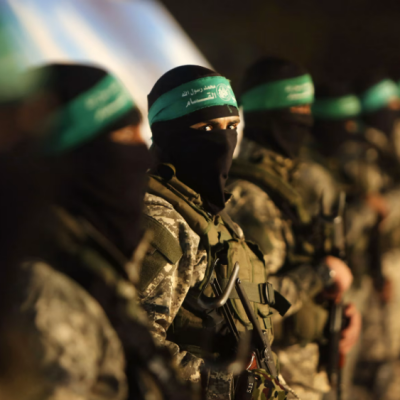– Background:
The idea of a regional NATO in general is not new. It started decades ago, specifically in the aftermath of the 1948 war, when the “Joint Arab Defense Treaty” was established, which is based on cooperation to confront external aggression against the Arab countries that are members of the treaty, and it was talking about preparing military plans to confront all expected dangers. Or any armed aggression that may occur against one or more of the contracting states or their forces, and the preparation of these plans is based on the bases determined by the Joint Defense Council, which consists of the Ministers of Foreign Affairs and National Defense or their representatives, and a military advisory body of chiefs of staff of armies. The contracting states and a permanent military committee, and this treaty did not have any actual presence in most of the challenges that faced Arab national security, from the Arab-Israeli conflict, through the crisis of Iraq’s occupation of Kuwait and its repercussions, until the outbreak of chaos and violence in the wake of the Arab Spring revolutions in 2011.
In the same context, the United States and Israel sought to modify the concept of the main threat to the Sunni Arab camp, which they see in three main threats, namely:
- The Shiite camp represented by Iran and its affiliates such as Hezbollah, the Popular Mobilization Forces and the Houthis.
- The Salafi-jihadi camp, which is represented by terrorist and extremist organizations, which are proscribed internationally and regionally.
- The Muslim Brotherhood camp, which is represented by the Muslim Brotherhood organization supported by Turkey and Qatar. I claim that the third was under the guidance of Trump and Netanyahu to put pressure on the two countries in favor of the Arab boycott against Qatar at the time.
Accordingly, the “Arab NATO” idea appeared in 2018, which was frozen in time due to the withdrawal of Egypt, which was in the middle of its boycott against Qatar, disputes with Turkey and during its severe crisis fighting against the Muslim Brotherhood and terrorism in Egypt.
Reasons for Egypt’s decision to withdraw from the Arab NATO in 2019 (personal opinion):
- Nature of the threat:
From the beginning, Egypt informed Saudi Arabia and the UAE, the two countries that were actively seeking to launch the Arab NATO military alliance to deter Iran, that the latter did not represent it a first-class enemy, and that it was not interested in provoking hostility with a regional party. I claim that after prolonged consultations and negotiations between the leadership of the two countries and the Egyptian leadership, Cairo reluctantly accepted participation, in exchange for a package of aid and economic commitments, before Egyptian President Abdel Fattah al-Sisi returned and informed the leadership of the two countries of the final refusal to participate.
- The leadership of the coalition:
I think that it is difficult for the Egyptian army to accept being under any Arab leadership in a permanent alliance. If it is necessary to participate in the alliance, then the leadership should be Egyptian. As it is not logical for the Egyptian soldier to be under the command of armies that did not fight a single war in the region, and whose military weight does not represent half of the weight of the Egyptian army.
- The biggest beneficiary:
It is natural that the biggest beneficiary of the Arab NATO is the rich Arab countries, which will allocate the largest possible budgets to it, bearing in mind that there are Arab countries whose constitutions do not allow them to participate in such alliances. Which will make the large and powerful Egyptian army the real deployed forces on the ground, to counter the threats of the Arab NATO, but with the funds of the rich Arab countries that benefit from it, which suggests that it acts as mercenaries for the benefit of the goals and threats of other countries that may not intend to use their forces in the first place.
- Saudi Arabia has previously thwarted Egyptian efforts to form a joint Arab force, therefore, Egypt did the same.
– The current situation:
In March 2022, a closed meeting in Sharm El-Sheikh was held. It was held with participation of six countries, namely the United States, Egypt, Saudi Arabia, Emirates, Bahrain, and Jordan. Specific statements were issued
as follows:
- There is a new regional security order based on progress, technology, religious tolerance, and joint security and intelligence cooperation.
- A security committee and a joint early warning framework were formed, and it was agreed that this meeting would be called the (Negev Forum), and that periodic meetings would be held in this regard.
Today, the procedures are being completed in public. During the last week, meetings were held in Manama under the name of the “Naqab Forum”.
In the same context, and a few days before that, meetings were held, attended by leaders from Israel and some concerned Arab countries, regarding the so-called “security defense program for the region.”
– The difference between the previous situation and the current situation:
- Whether the joint Arab defense treaty or the Arab NATO, all of them did not happen on the ground
- The three camps/threats (the Shiite camp, the Salafi-jihadi camp and the Muslim Brotherhood camp) are an alternative to the old common threat of the Sunni Arab camp, which includes the Gulf states, Egypt, Iraq and Jordan in particular, and all Arab countries in general; this old common threat was Israel.
- “Middle East NATO” appears in a broader sense, as it includes the countries of the Middle East region, including Arab countries and some non-Arab countries, in a common defense system.
- The Arab countries in the past gathered on one threat, which is Israel. Today, I claim that the threats of the Arab countries are different. Iran is a regular threat to the Gulf countries, but the position of the Sultanate of Oman is relatively different; at a time when Iran does not represent a threat to Egypt, but rather the two camps., the Salafi Jihadi and the Muslim Brotherhood. At the Middle Eastern level, we find that Israel considers Iran and its proxies the most dangerous threat. As for the terrorist organizations and the Muslim Brotherhood, it has been able to tame them. In view of Turkey, its threat is the Kurdish president and some jihadist organizations. As for the Muslim Brotherhood camp, it is linked to Turkey in the first place.
Egyptian position:
- Egypt declares its peaceful position regionally and internationally, but it also declares that it faces two main threats, namely terrorism, represented by the Salafi-jihadi camp, and the expansionist ideological political thought represented by the Muslim Brotherhood.
- The focus is currently on removing the third camp, which bears the threat of the Muslim Brotherhood, from the list of three threats. Hence, I claim that Saudi Arabia is trying to mediate between Turkey and Egypt, and at the same time there is a noticeable Egyptian-Qatari rapprochement, and all the two approaches will result in the removal of the Muslim Brotherhood from the list of the three threats mainly to Egypt and other Arab countries such as Jordan.
Based on the foregoing, any upcoming meetings in this regard, I belive that it will be related to NATO in the Middle East and will not only concern the Iranian air threat and the counter joint air defense system. they will include the nature and classification of common threat of the Arab countries and separate individual threat for each country, will be expanded upon, as terrorist elements can have the drones that need to be confront with advanced air defense systems. It is also possible to address the broad lines including, the implementation mechanism, the identification of the leading country, funding, organization, formation, possible deployment, tasks, and other related matters.
“Despite reports circulating in the media of the imminent formation of a military alliance in the Middle East similar to NATO, this is not likely to happen anytime soon”, Egyptian Foreign Minister Sameh Shoukry said during a press conference in Bahrain on 01 July 2022. Based on the Egyptian FM statement, a question may appear: ” If the Middle East similar to NATO is not likely to happen anytime soon, will it happen in the future?”.
Although Mr. Shukry statement seems logic, I think that it was not decisive enough as it did not close entirely the issue.
Sayed Ghoneim
MG(R). PhD in Political Science
Fellow, Nasser’s Higher Military Academy (Egypt)
Chairman, IGSDA (UAE)




